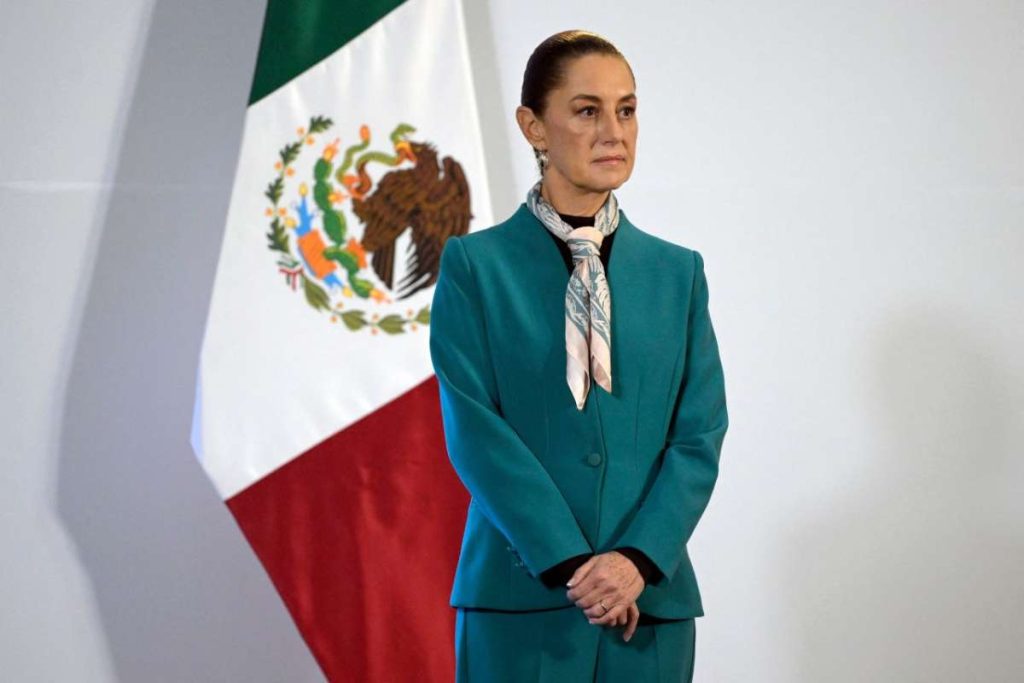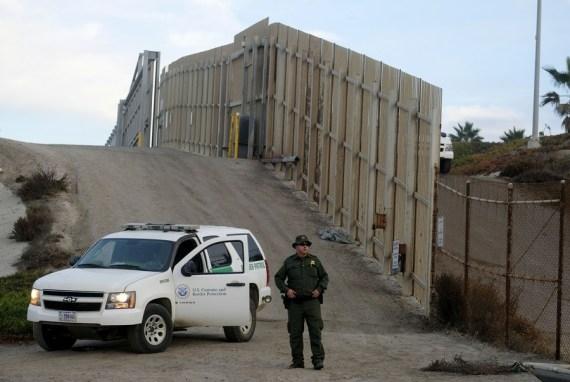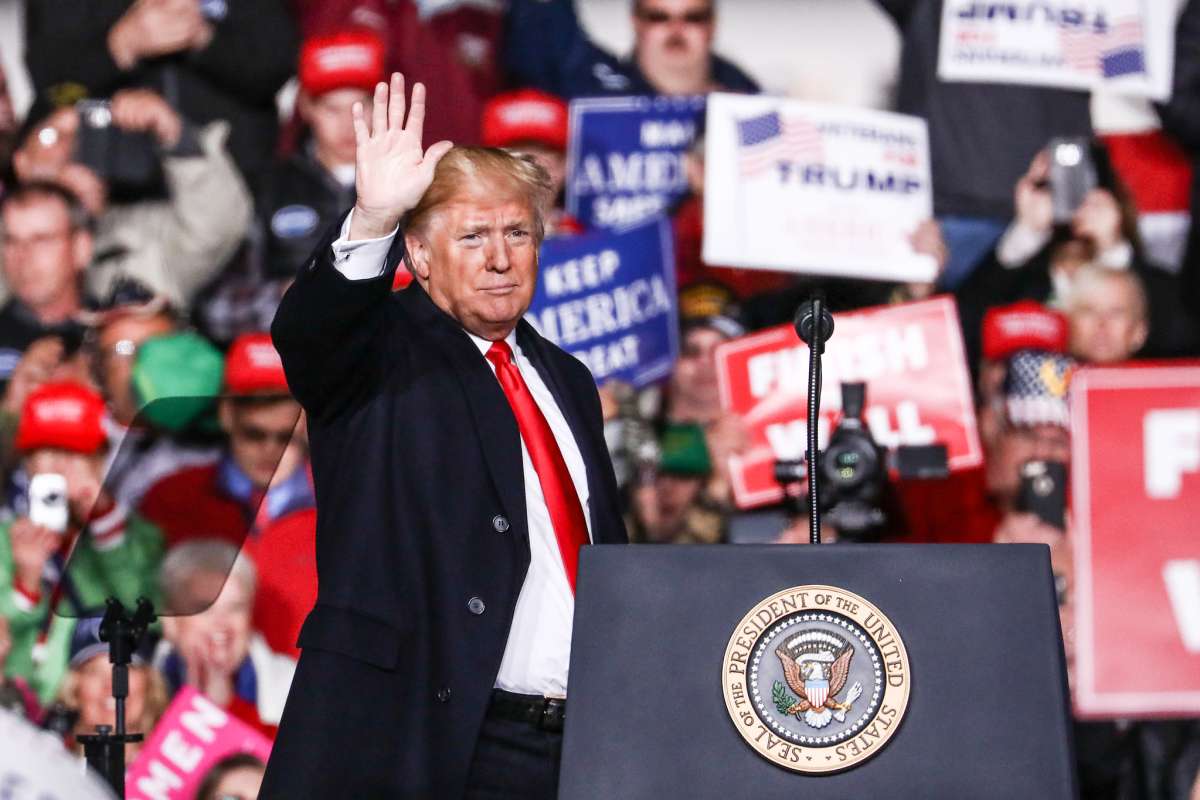President-elect Donald Trump declared a win on stopping illegal immigration through Mexico on after talking with that country’s leader
President-elect Donald Trump declared a win on stopping illegal immigration through Mexico on Wednesday after talking with that country’s leader. But Mexican President Claudia Sheinbaum suggested Mexico was already doing its part and had no interest in closing its borders.
The two spoke just days after Trump threatened to impose sweeping new tariffs on Canada and Mexico as part of his effort to crack down on illegal immigration and drugs.
Trump said Sheinbaum “agreed to stop Migration through Mexico.” Sheinbaum indicated separately on social media that she told Trump that Mexico is already “taking care of” migrant caravans, calling it an “excellent conversation.”
“We reiterate that Mexico’s position is not to close borders but to build bridges between governments and between peoples,” Sheinbaum added.
While the state of the proposed tariffs remained unclear, Trump said in a post on his Truth Social account that this was “effectively closing our Southern Border.” He called it a “very productive conversation.”
The exchange between the two leaders appeared to confirm for Trump the value of threatening to disrupt trade with import taxes. His initial social media post moved financial markets and gave him a response he was quick to describe as a win. Even if the proposed tariffs fail to materialize, Trump can tell supporters that the mere possibility of them is an effective policy tool and continue to rely on tariff threats.
Sheinbaum wrote on social media that the leaders “discussed Mexico’s strategy on migration issues, and I told him the caravans are not reaching the northern (U.S.) border, because Mexico is taking care of them.”
“We also talked about reinforcing cooperation on security issues, within the framework of our sovereignty, and the campaign we are carrying out to prevent fentanyl consumption,” she said.

Illegal migration across the Mexico border is down in part because the Biden administration secured some stepped-up cooperation from Mexico — the sort Trump seems to be celebrating.
Arrivals at the U.S.-Mexico border have dropped 40% from an all-time high in December. U.S. officials mostly credit Mexican vigilance around rail yards and highway checkpoints.
Driven by mounting pressure from the U.S. to block migrants going north, in the past few years Mexican authorities have turned to rounding them up across the country and sending them to southern Mexico, in a strategy seen by experts as an attempt to wear migrants out until they give up.
Neither side clarified the status of the tariffs. But their implementation could fuel higher prices and slow economic growth, potentially blowing up the trade agreement among the U.S., Canada and Mexico that was finalized in 2020 during Trump’s previous time in the White House.
Trump on Monday said he would impose a 25% tax on all products entering the country from Canada and Mexico as one of his first executive orders upon taking office on Jan. 20. He also proposed an additional 10% tariff on China tied to its exporting of materials used in the production of fentanyl.

In announcing his plans, he railed against the flow of fentanyl and migrants crossing into the U.S. illegally, even though southern border apprehensions have been hovering near four-year lows.
On Wednesday, Trump also posted that he plans a large scale ad campaign to explain “how bad Fentanyl is for people to use,” predicting it would educate people on “how really bad the horror of this Drug is.”
The dangerously powerful opioid was developed to treat intense pain from ailments like cancer but has increasingly been mixed with other drugs in the illicit drug supply.
Through September, the United States has imported $378.9 billion in goods from Mexico, $322.2 billion from China and $309.3 billion from Canada.
After Trump’s re-election, Trump 2.0 is likely to see some reduction in global wars, lesser geo political uncertainty and stable crude prices, according to a report by by stockbroking firm Prabhudas Lilladher.
The report highlighted that Trump’s foreign policy has historically emphasized negotiation over prolonged military engagements. This approach could potentially bring an end to the Russia-Ukraine conflict, leading to a more peaceful global environment.
It said “Trump 2.0 is likely to see some reduction in global wars, lesser geo political uncertainty and stable crude prices”
The report stated that with strengthened Republican control over the U.S. Senate, House of Representatives, and a conservative majority in the Supreme Court, a Trump-led administration is expected to enact and sustain substantial policy changes. These changes could reshape trade dynamics, geopolitical strategies, and regulatory frameworks globally.
The report also added Trump’s strong diplomatic ties with Saudi Arabia and the UAE. His role in the 2020 Abraham Accords and close relationship with Saudi Crown Prince Mohammed bin Salman indicate that he could continue to stabilize the Gulf region, reducing tensions and benefiting global trade.
On the energy front, Trump’s policies to boost domestic oil production to pre-pandemic levels of over 13 million barrels per day could challenge OPEC’s influence on oil prices. This move would strengthen the U.S.’s position as a net oil exporter, reduce reliance on Middle Eastern oil, and ensure long-term energy price stability.
ALSO READ: Trump won about 2.5M more votes this year
ALSO READ: Trump Claims Ceasefire Deal

Leave a Reply